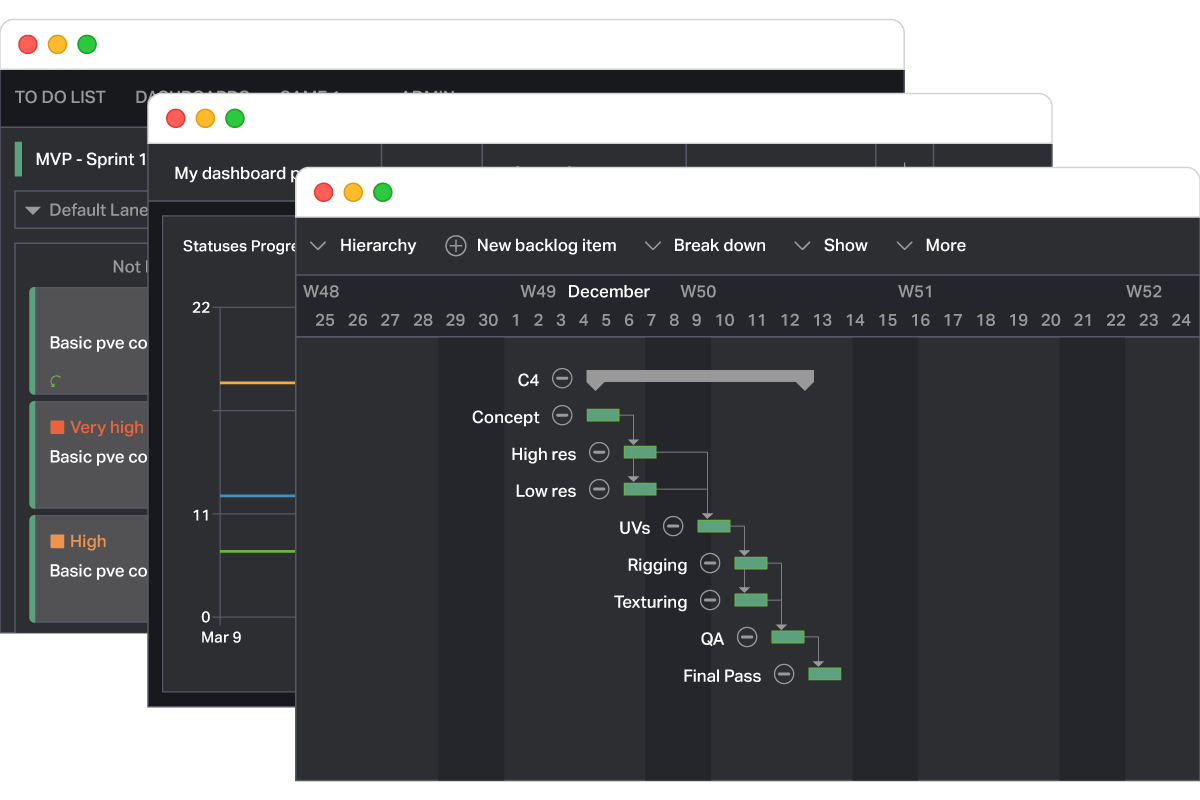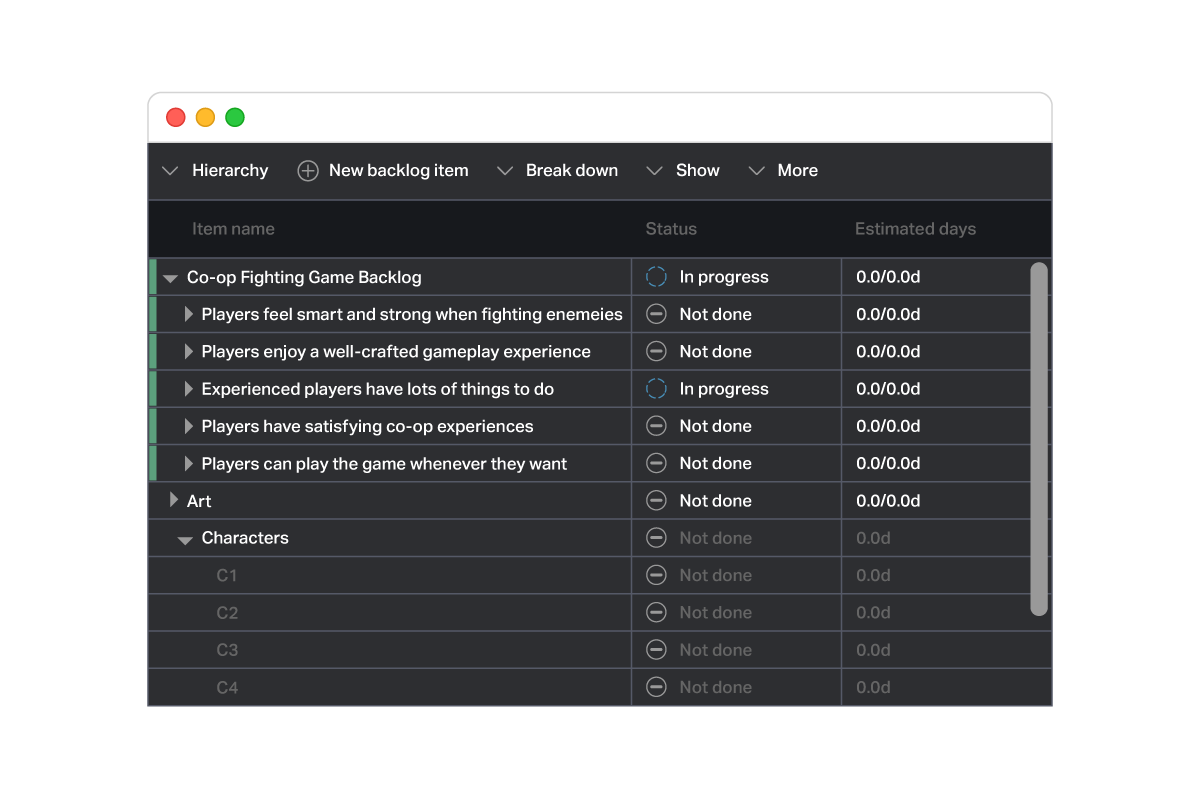
Track in Real-Time
Get the real-time visibility you need to track work, time spent, and overall progress. P4 Plan helps you make decisions and manage dependencies with the ability to:
- Gain insight into the entire scope of your project with a wide variety of views including Product Backlog, Quality Assurance, and Planning.
- Determine capacity planning for your users and user groups.
- View your entire project history to easily identify changes across your project plan.
- Deploy where you want, either on-prem or in the cloud.
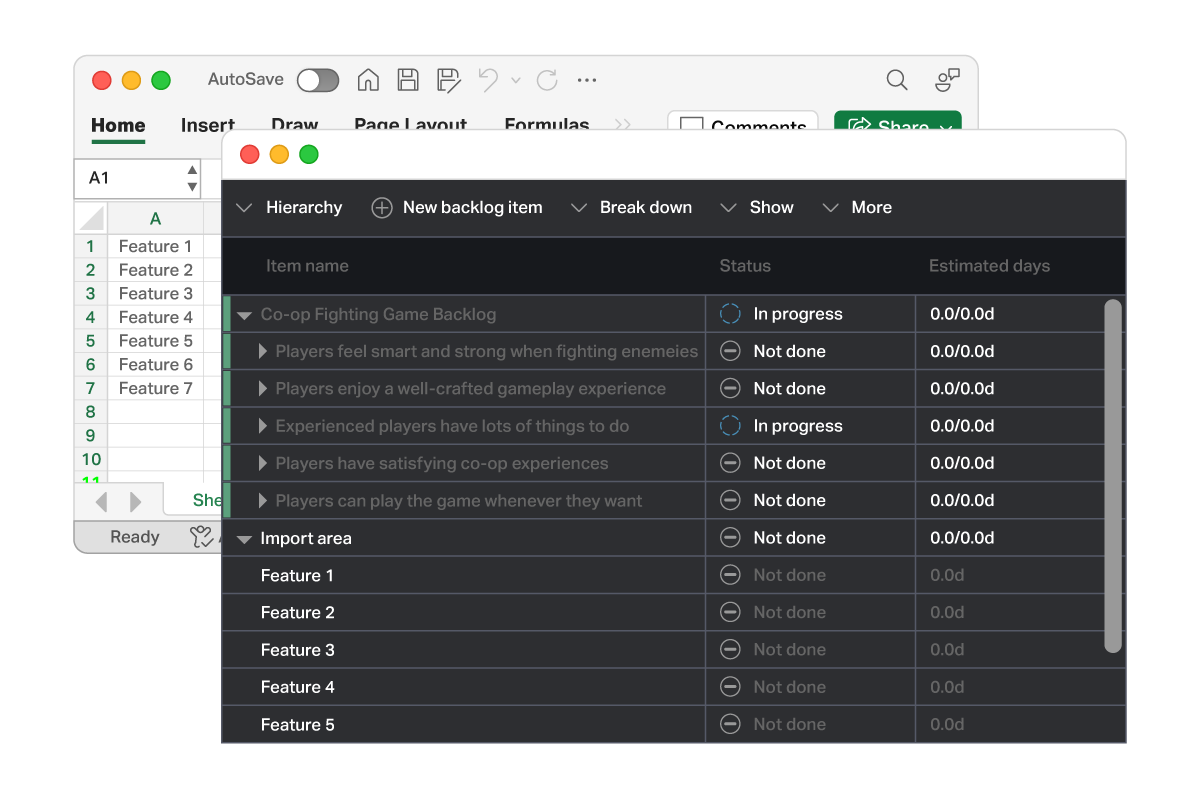
Build Product Plans Fast
With an interface that functions like a multiplayer game, P4 Plan lets you build and adjust plans fast. Accelerate your planning with a system that lets you:
- Import files from Excel, MS Project, XML, and other text-based formats to create tasks or update items.
- Deliver faster and eliminate inefficiencies with a built-in Pipeline Editor.
- Create advanced Find queries and operators.
- Create custom automations and integrations with an advanced GraphQL API.
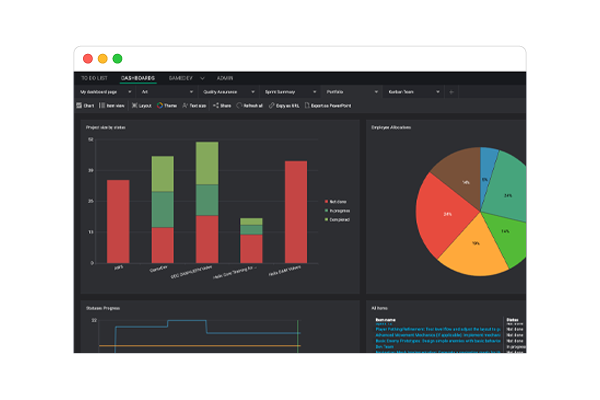
Create Plans with Versatility
P4 Plan brings together the most popular project management methods into one plan, letting each of your team members work in their preferred way. Collaborate securely across your cross-functional teams, and deliver plans across project, program, and portfolio levels with:
- Enterprise-level permissions that let you set visibility and edit access for each individual field.
- Ghost Users that can serve as placeholders for scenario-building and resourcing.
- Project User Groups that give collaborators only the views they need.
- The flexibility to combine project management methods, including: SAFe, Scrum, Kanban, Lean, Gantt, and more.
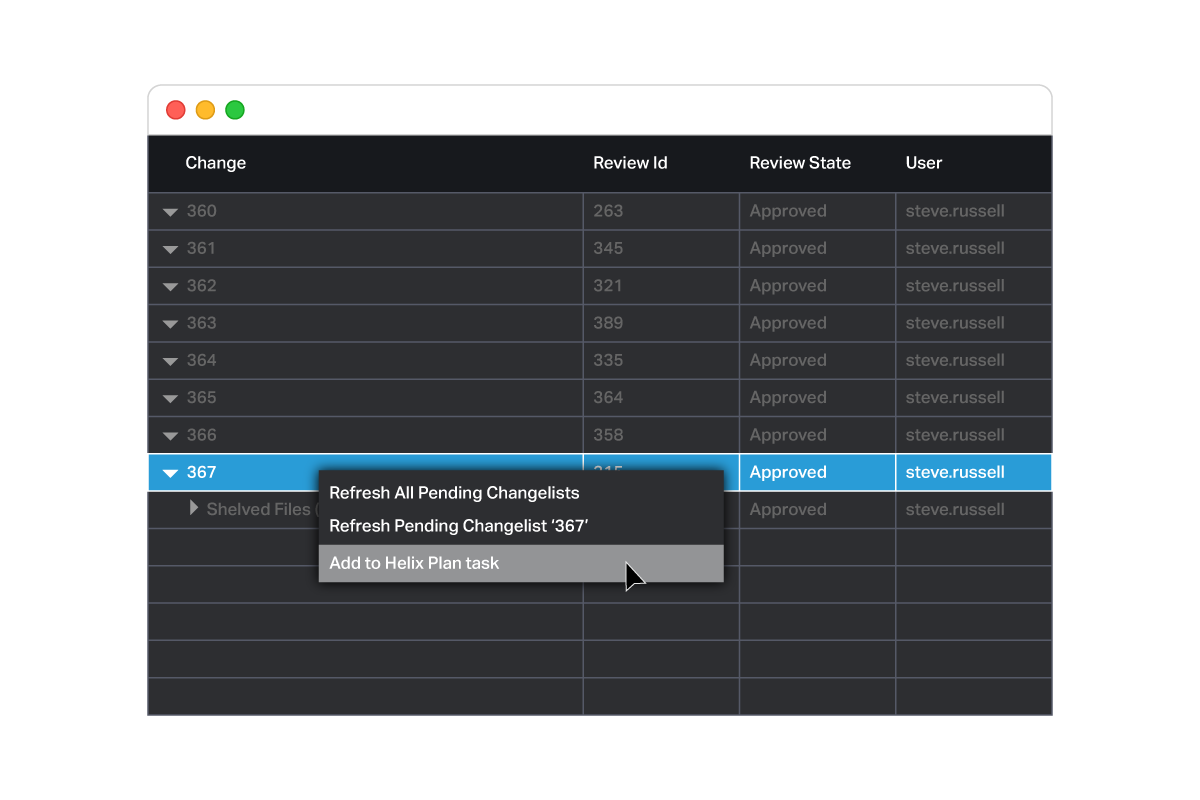
Expand Your Capabilities
Enable deeper tracking and traceability by connecting P4 Plan to tools and workflows you’re already using for your development. Pre-built integrations allow you to:
- Link tasks to your changelists with P4.
- Unify regulatory and non-regulatory requirements with Perforce ALM.
- Login with your SSO provider with P4 Authentication Service.
Real-Time Planning for DevOps
Learn how P4 Plan (formerly Helix Plan) helps teams work faster, smarter, and with unrivaled efficiency.
“We needed a tool that meaningfully enables better planning and operations, and we found that in [P4 Plan]."

Unlock Efficiency—Everywhere, for Everyone
P4 Plan is accessible via browser or desktop app. Connect it to P4, our powerful and flexible version control platform, for deeper tracking and traceability.
Speed up production, end file sharing chaos, and give your team the power to do their best work—no matter how big the project or how tight the deadline.
Get Started with P4 Plan
You can get started with P4 Plan for free for up to 5 users.
See P4 Plan in Action
Watch our on-demand demo to learn how P4 Plan can increase your planning efficiency.
We’re Here to Help
Get in touch with our experts. They’ll walk through solutions that work best for you and your team.

